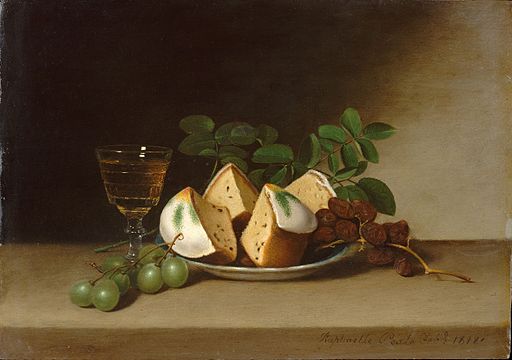Food for Thought
Joy and Matthew Steem
 “It tastes healthy,” my friend benignly replied to my increasingly inquisitive gestures in the church potluck dining hall. The substance before us had the color of chocolate mousse; it had the consistency of chocolate mousse; it certainly felt like chocolate mousse on the tongue, but upon taking a mouthful, it immediately introduced itself with that telltale vegan, no sugar added, and nutrients aplenty sensation. It wagged its tongue at the sweet sultry flavor that chocolate offers—no sir, this stuff boasted dates, avocados, and coconut milk!
“It tastes healthy,” my friend benignly replied to my increasingly inquisitive gestures in the church potluck dining hall. The substance before us had the color of chocolate mousse; it had the consistency of chocolate mousse; it certainly felt like chocolate mousse on the tongue, but upon taking a mouthful, it immediately introduced itself with that telltale vegan, no sugar added, and nutrients aplenty sensation. It wagged its tongue at the sweet sultry flavor that chocolate offers—no sir, this stuff boasted dates, avocados, and coconut milk!
Now, I actually have a pretty strong affinity for quirky health-filled kitchen concoctions. Pinto bean brownies, dessert hummus, beet breakfast bars with chilli peppers and cardamom, gingered lentil goji berry cereal: these are things that find their way into my edible creations. Someone might call my concoctions bizarre, but most nutritionally minded people I know would call them wholesome, or guilt free, or maybe even innocent: and they would mean it as a compliment. Still, though, there is no denying it, sugar-free, dairy-free, gluten-free food generally has that healthy taste about it. And to be honest, as a metaphorical concept, the whole healthy food versus yummy food dichotomy deeply troubles me. I struggle against the thought because as someone who aspires to a spiritually enriched life, I feel that the polarization relegates my pursuits to the healthy tasting section of the potluck table: the brownish, runny bland dish in a homely, well-used crockpot that people look at probingly before quickly darting to the next dish.
Several years ago I found it quite convenient to partake in an exclusively strict superfood laden regimen. I had some spare time on my hands so I figured taking the effort to prepare really healthy stuff would be a good experiment in how it made me feel. For months I ate sprouts, beans, kale, spinach and tofu—it was a banquet of nutrition packed awesomeness. And then a friend of mine, who happens to be an excellent cook, came to stay with me.
During the week together we feasted on homemade buttery shrimp bisque, Greek pasta salads that luxuriated in feta cheese and oil, crème brulee and cake so delightful that I could have written romantic odes to it. Meal after meal I quietly moaned to my friend, “I didn’t know food could taste this good.” Every meal was like a Dionysian festival betwixt my lips.
When my friend left and the culinary expedition ended, I felt as though I had two stark choices for restocking my refrigerator: sprouts or stroganoff. I approached my food choices as I sometimes subconsciously approach life: I could make the healthy and responsible choice or the delicious and enjoyable one. My mouth, accustomed to the sweet joys of butter, sugar and cream howled for satisfaction, my body, slightly sluggish but staunch, quietly demanded some veggies. I had to make a choice, there was only room for one.
What I am seeing more of is that, as a general concept, enjoyment and responsibility are not necessarily as dichotomous as I sometimes have been led to believe though. Surprising as it is to me, my pursuits can’t quite be compacted down to the category of a vegetable or a cake. This is particularly applicable to a nuanced spiritual perspective. In an excerpt of Miroslav Volf’s book, Flourishing: Why We Need Religion in a Globalized World, posted in Christian Century, he says:
In choosing between meaning and pleasure we always make the wrong choice. Pleasure without meaning is vapid; meaning without pleasure is crushing. In its own way, each is nihilistic without the other. But we don’t need to choose. The unity of meaning and pleasure, which we experience as joy, is given with the God who is Love.
This is truly magnificent news, for it tells me my dichotomy is off. Love personified has constructed a world in which, when approached from a spiritual lens, proffers things both beneficial and satisfying. Our spiritual awareness, far from making us and our world the unappealing undercooked onion puree in the potluck of life, enhances flavor.